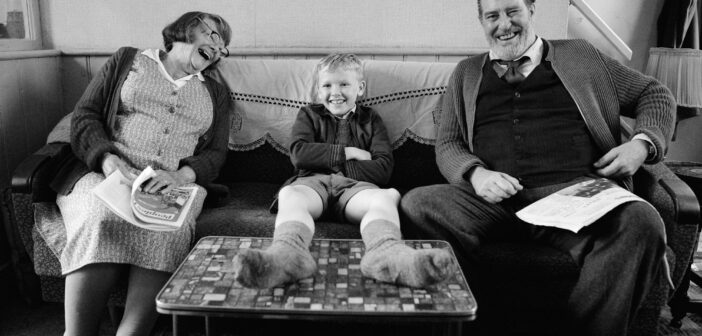Director Kenneth Branagh somehow makes a soulless semi-autobiographical film and a political film for those who are afraid of politics.
-
2
Kenneth Branagh’s latest directorial effort, following an oddity of a career that has seen him helm prestige products (such as his Shakespeare adaptations) and films like Thor and Jack Ryan: Shadow Recruit, is a complete and utter failure. It represents exactly the kind of film that seems to be made solely to appeal to a demographic of high brow filmgoers who prefer vague politics and monochromatic cinematography.

Northern Ireland Screen
Belfast is completely and utterly miserable. Branagh’s ambition to make a political film not only from a child’s perspective but also a semi-autobiographical one is painfully misguided, as the film opens with Buddy, the film’s young protagonist growing up in late ’60s Belfast as the Troubles between Catholic and Protestant started to take hold. As a political film, it has nothing to say and is frequently misguiding in spite of its typical ‘true-story’ drama grit brought in by long takes and slow-motion shots of political violence that taint the reality of these battles – it is a political film for the apolitical, a film that is focused on the emotional responses to fear of change more than anything else.
As a coming-of-age film, there is almost no emotion or personality involved in any way as the performances never move beyond feeling as though they belong more to a low budget soap opera and, as an art film, it gives in to the same handful of the most clichéd high brow prompts imaginable as it commits to the same once-impressive but now irritating coming-of-age narrative tropes and, just like the characters, boasts so little personality it’s difficult to imagine a person being behind the camera at any point, never-mind one supposedly directing an adaptation of their own experiences.
Its high-brow references don’t help it either – the use of intertextuality here is just grating as the film directly takes scenes from better films (High Noon, The Man Who Shot Liberty Valance, Chitty Chitty Bang Bang, and more) and riffs on other classics like Cinema Paradiso and Ivan the Terrible, part II. It seems impossible for a film to be able to refer to an Eisenstein film and still feel entirely soulless, but Branagh makes it work.
Jamie Dornan admittedly does his best with the script, but the script gives him little room to move and the schmaltzy sentimentality eventually drowns a film that had the potential to finally tell a strong story about The Troubles. Branagh can channel other great artists all he likes, but Belfast continues to shoot itself in the foot continuously as its 98 minute runtime becomes a brutally punishing saga of Wes Anderson-type framing, abysmal soundtrack choices and awkward half-jokes.
The more films he makes, the clearer it is that Branagh should stick to acting. This is a film just bad enough that it has a great shot at winning Best Picture when the Oscars come around.
Belfast is now showing in U.K. cinemas, certificate 12A. Watch the trailer below:




